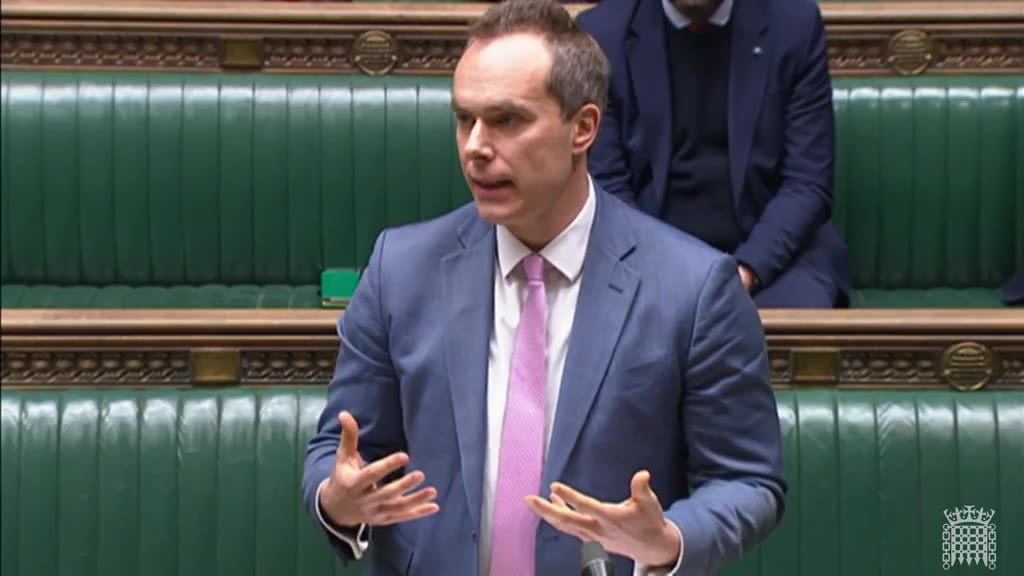SEND provision and funding
Petitions and a Parliamentary debate

On Thursday 11 January 2024, Sir David Davis MP led a Backbench Business debate on special educational needs (SEND) provision and funding.
Along with other MPs, he spoke about the many petitions related to SEND, and quoted some of the people who signed them:
This page has:
- A summary of the Government’s response to the debate
- Links to watch the debate or read the transcript
- Some relevant Parliamentary activity and resources
- A Backbench Business debate explainer.
The Government's response

The Minister for Children, Families and Wellbeing, David Johnston MP, responded to the debate on behalf of the Government. He addressed the Government’s current policy agenda and future ambitions related to the debate topic.
Watch or read his full speech for details where he covers a range of topics including:
- Changes to the high needs budget which will total £10.54bn in 2024-25.
- Programmes for local authorities facing financial pressure in their SEND system, including the safety valve programme and delivering better value programme.
- The Universal SEND services programme which provides SEND training for the school and college workforce.
- The SEND and alternative provision improvement plan which was published in 2023. The Minister highlighted some areas of the plan related to the debate and the petitions attached to it:
i. A £2.6 billion investment in special school provision and capital funding
ii. Developing national standards of support for special educational needs, beginning with one for speech and language, which will be released later this year
iii. Publishing a local and national inclusion dashboard, through which parents will be able to monitor their local area
iv. Reviewing the Core Content Framework and the Early Careers Framework for teachers.

Parliamentary resources and activity

House of Commons Library
Relevant research:
- Special Educational Needs: support in England (May 2023)
- The Special Educational Needs and Disabilities and Alternative Provision Improvement Plan (March 2023)
Parliamentary activity
Westminster Hall debates:
What are Backbench Business debates?
Backbench Business debates give backbench MPs an opportunity to have a debate on a topic of their choice.
MPs can request time for a debate from the Backbench Business Committee, which decides the debates to schedule.
These debates do not often involve a vote on a particular action or decision.
Instead, they are a way to:
- raise awareness of an issue, often as part of a wider campaign
- seek to influence government policy
- put the views of backbench MPs, opposition parties, and the government on record.
The setting
Backbench Business debates happen in the House of Commons Chamber or in Westminster Hall.
This explainer focuses on debates which take place in the House of Commons Chamber.
Chairing the debate
Backbench Business debates are chaired by the Speaker or one of the Deputy Speakers. Their role is to:
- ensure debates keep to the time allocated
- call on MPs to speak
- make sure MPs follow the rules of debate.
Opening the debate
The MP who requested the debate makes the first speech.
They will generally:
- outline their views on the issue
- present examples
- in some cases, call on the government to take action.
Backbench speeches
After the opening speech, other backbench MPs take turns to speak in the debate.
The main opposition parties
The main opposition parties then have a chance to respond.
An MP from the third largest party generally goes first, and is followed by an MP from the official Opposition.
They outline their party's position on the issue.
The government's response
The Minister then responds to the debate on behalf of the government.
The Minister will generally:
- respond to concerns raised by MPs
- explain the government's position and policies
- share relevant plans or ambitions for the future.
Closing the debate
If there is enough time, the MP who opened the debate can make final comments. The debate is then concluded.
Engaging with debates
There are a number of ways you can engage with Backbench Business Committee debates:
- You can contact your MP and ask them to attend a debate. Or you can ask them to request their own debate on an issue you feel is important.
- You can watch debates online or attend in person. Find out what's on by looking at the Parliamentary calendar.
- For some debates, you may be asked to share your insights and experiences. This can help inform the MPs taking part in the debate. See the Chamber Engagement website for details.
Lisa, Ian and Charlotte helped inform previous debates on topics including the menopause and pensions advice:
Find out more about how the Backbench Business Committee works.

